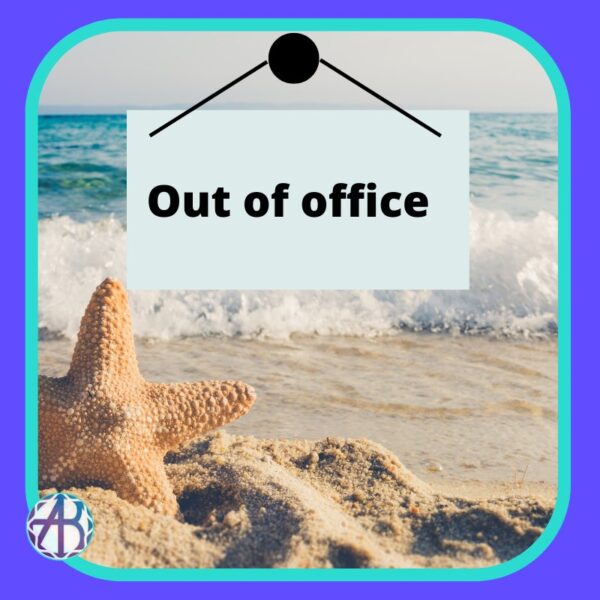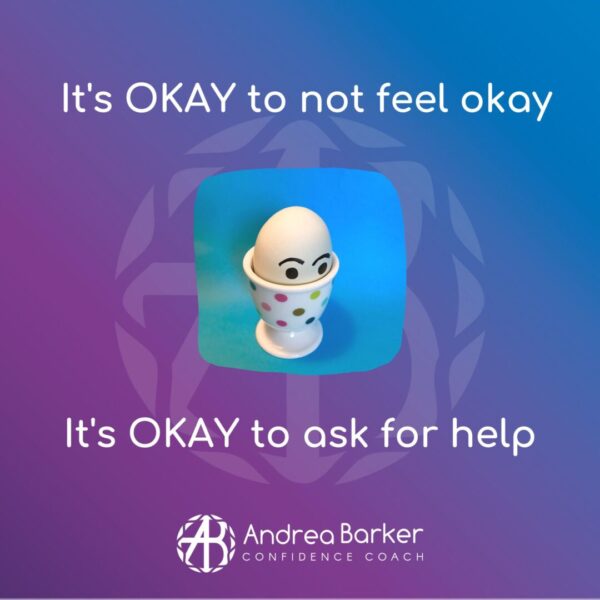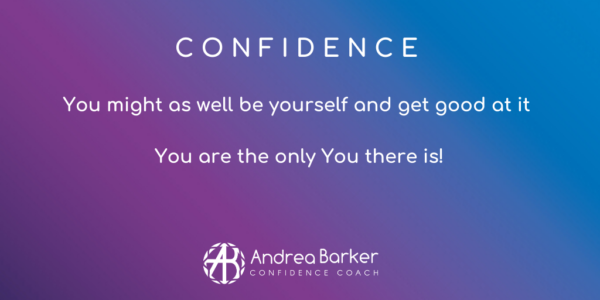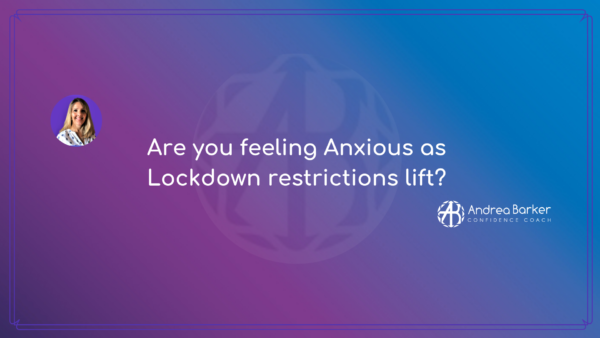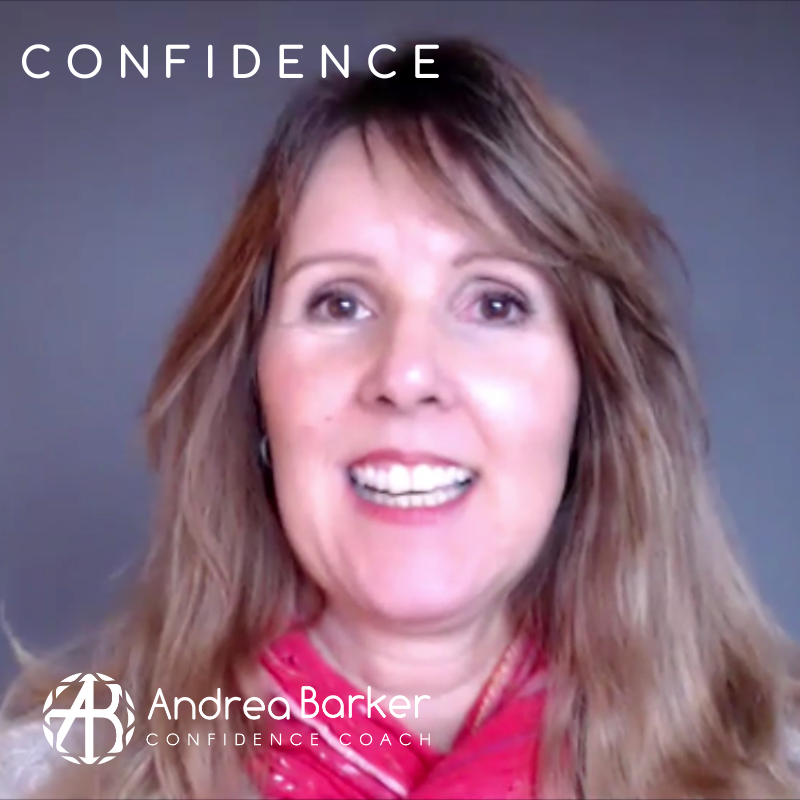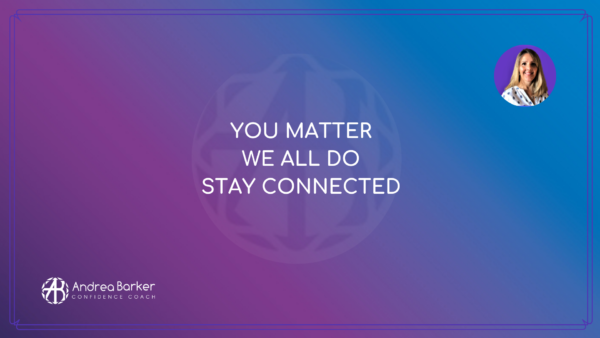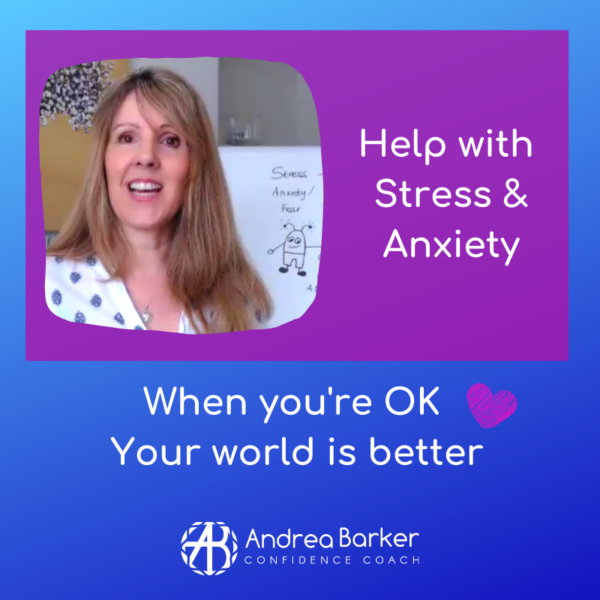Anxiety Relief
Switching off on Holiday is VITAL to our Health
Many people do not switch off on holiday
With the rise in home working, hybrid working and the ease of technology – many people find they work every day on their holiday or weekends off.
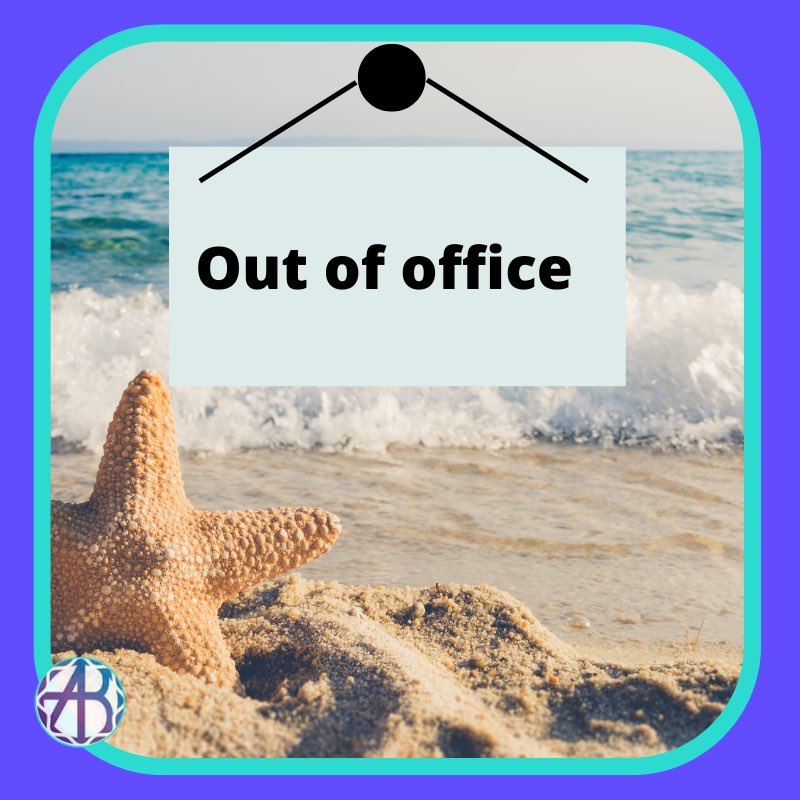
The lines become blurred between work and home life or leisure time
Some workers do have pressure piled on them to perform and be productive, or can risk being missed off the Rota or bonus incentives.
This can cause huge stress and anxiety – leading to Burnout.
Excessive pressure is actually counterproductive as productivity levels actually fall.
Rising stress levels and tiredness leads to loss of concentration – resulting in accidents, which involves monetary costs, loss of hours through sickness or injury and therefore loss in productivity, and risking losing a good reputation.
Mental and Physical Health can be seriously compromised, not to mention what it does to home life and relationships.
Blood pressure can go up, there can be trouble sleeping and tension at home and not being present when you are there.
Strong argument to switch off, however many do not!
So, despite strong arguments for a total detox by switching off – why is it people don’t? Other than the pressures already mentioned, there is also the pressure we put on ourselves.
Sometimes it is FOMO – the Fear Of Missing Out and that maybe things won’t run as well if we are not there!
For some it is the need to provide, to pay the bills and of course this is important and an absolute necessity, but we mostly find – the more we earn the more we spend!
Time is a commodity we cannot get back.
Maybe we are so passionate about our work that we believe we don’t need a break from it – the saying ‘If you love what you do, then you never work a day in your life’ – Great! However, your life generally does not consist of just You, or if it does then where does that leave you, if one day you turn around from your hours of hard work and find you are alone? That may sound profound, however ‘No person is an Island’ and everyone needs balance in their life and times where love and support is needed
Holidays = Priceless & VITAL
Holidays – a total switch off & detox from your normal work routine, regardless of what that ‘holiday’ entails really is priceless
We can have pressures to have super-duper holidays that break the bank – which is not recommended you don’t want your holiday to be cause of more stress and feeling the need to work long hours to pay for it. It can take some careful planning and budgeting, but once you have decided on your holiday – then be fully invested in the precious time off.
Time off makes your happier
Having proper ‘time out’ and ‘switching off’ is something you can’t quantify. Recharging your batteries, connecting with those closest to you, and the things you enjoy doing and having good ‘ole FUN makes you a happier, more connected, balanced, productive person.
Connect and be fully present
Connecting with the people closest to you and being fully present, is something you and they will treasure for all their lives. Children especially value having you around and that you value spending your time with them. When you are always in ‘work mode’ the people around you feel they are not important to you.
Recharge your batteries
Have FUN and rekindle old hobbies or find new ones
Create precious memories
Totally switch your mind off gives you space & helps your find solutions or come up with great ideas
You feel Happier and Healthier
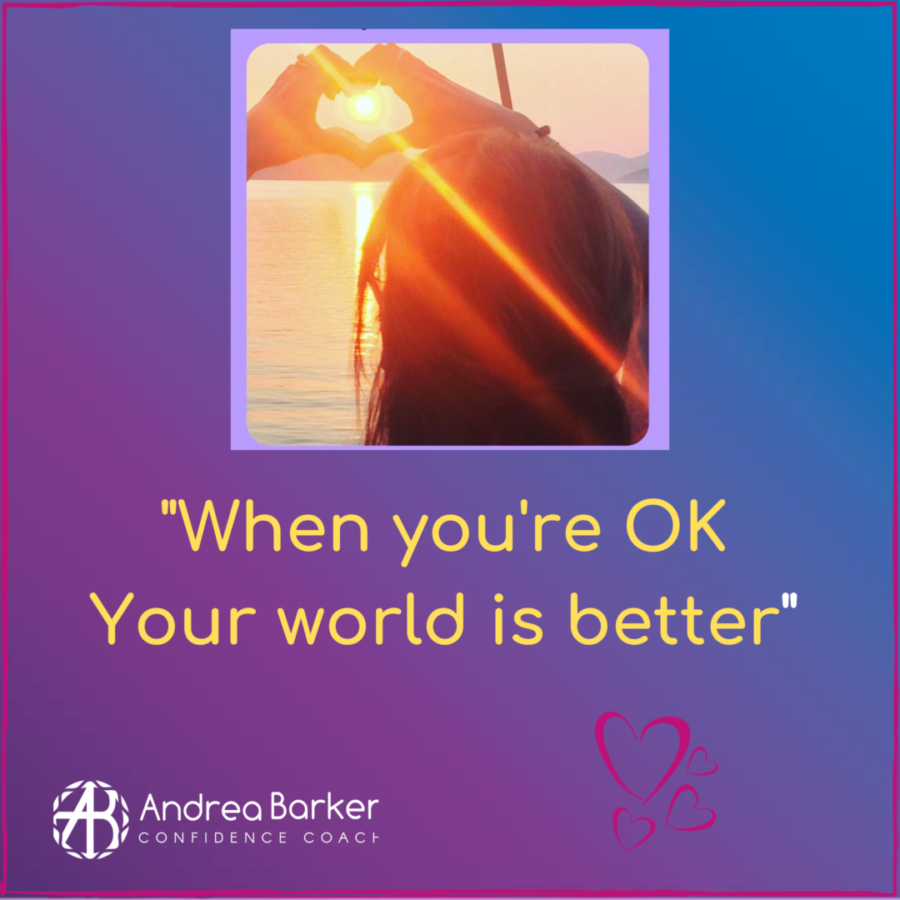
Leave work at work
So, decide how important the things that happen in work are while you are on holiday? What difference could you make from your sun lounger – really?
Plan effectively before you go; delegate tasks, or put them on hold, put trust in your staff (if you have them), let clients know you are ‘out of office’ and look forward to connecting with them when you are back – they absolutely get it.
If you are an employer; showing you respect and value your employees’ time off and their well-being – you get loyal more productive staff. Being valued is number 1 for employees.
Have confidence to set your boundaries and recognise the importance of investing in your health & well-being – you will have the best time and come back refreshed and ready to go.
So, go on – switch that ‘out of office’ on for emails and leave the work phone at home – why not? You have earnt it!
Andrea
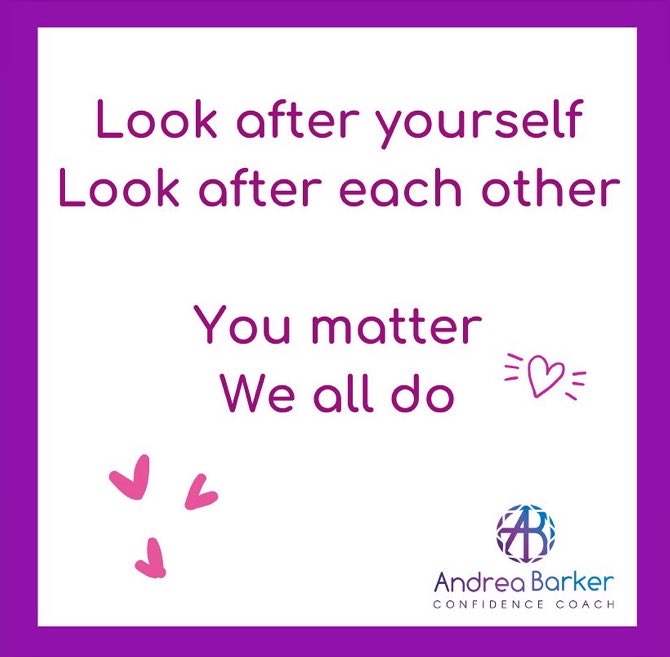
Social Media & Mental Health
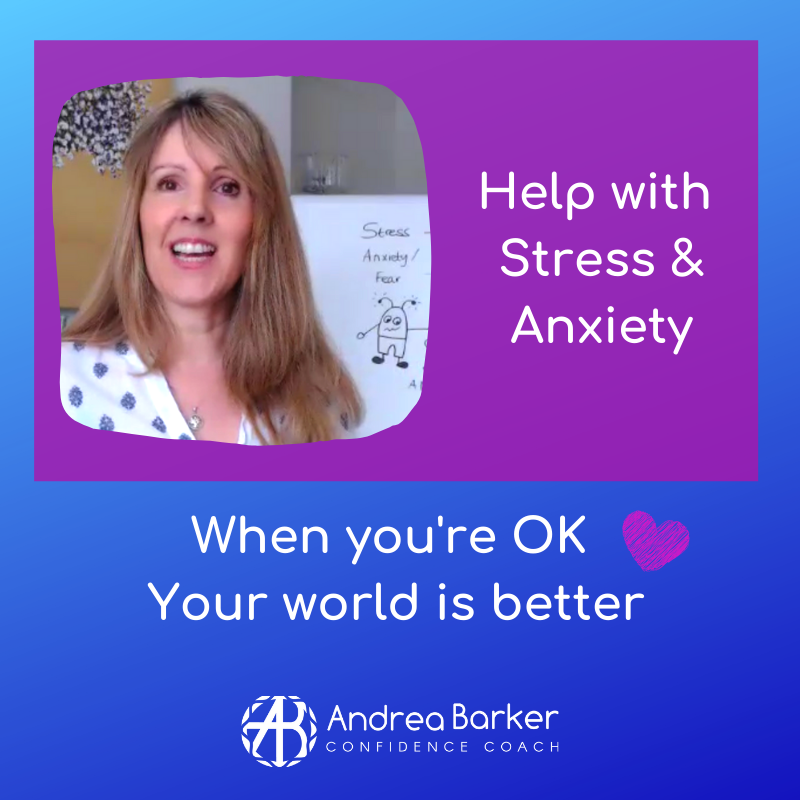
Social Media is so woven into our lives now and can be a great platform for showcasing amazing stories of success, recovery & resilience that gives inspiration and hope to others.
A common theme in many of these great stories, is the support and love of family, friends and work colleagues.
It can be hard to understand, that for some people these great stories are a difficult read.
Not everyone has loving family around them, or supportive friends & colleagues, for a vast array of reasons, to help them when they are struggling with their mental or physical health concerns or to be their personal cheerleaders.
There are many people who are the ‘rock’ in their family/ friend or business life and feel they ‘have to be ok’ and feel they can’t turn to those closest to them and see their struggle as ‘failure’ when compared to others achievements.
Social Media positive & negative

There are many people who are the ‘rock’ in their family/ friend or business life and feel they ‘have to be ok’ and feel they can’t turn to those closest to them and see their struggle as ‘failure’ when compared to others achievements.
Things to do that may help
- Try taking a social media holiday
- Do not compare yourself, your ‘journey’ to that of others – you are not them and they are not you and mostly you’re seeing a snapshot of what that person has been though to get from A to B. We’re all truly individual and our experiences are our own and we experience everything in our own way too.
- Do look at what inspires you though and what you think you could try, that appeals to you.
- Write down at least 3 things about yourself that you are happy about or proud of – it can be anything
- Get out into nature as much as you can
- Take time to breathe and have ‘time out’ in your day – just for you
- Listen to music
- Write down all your thoughts in a piece of paper – then rip it up or shred it – a great way to get those thoughts you don’t want out of your head
- Join a group activity like learning crafts or walking. It can feel so hard to do initially, but you’ll be glad you did.
- And definitely find deep inside you – the courage and confidence to take the first step to getting some support, whether through your GP or the many organisations who offer tips on their websites, text / chat options or people to speak to over the phone or in person
- It is okay to not be okay and to ask for help
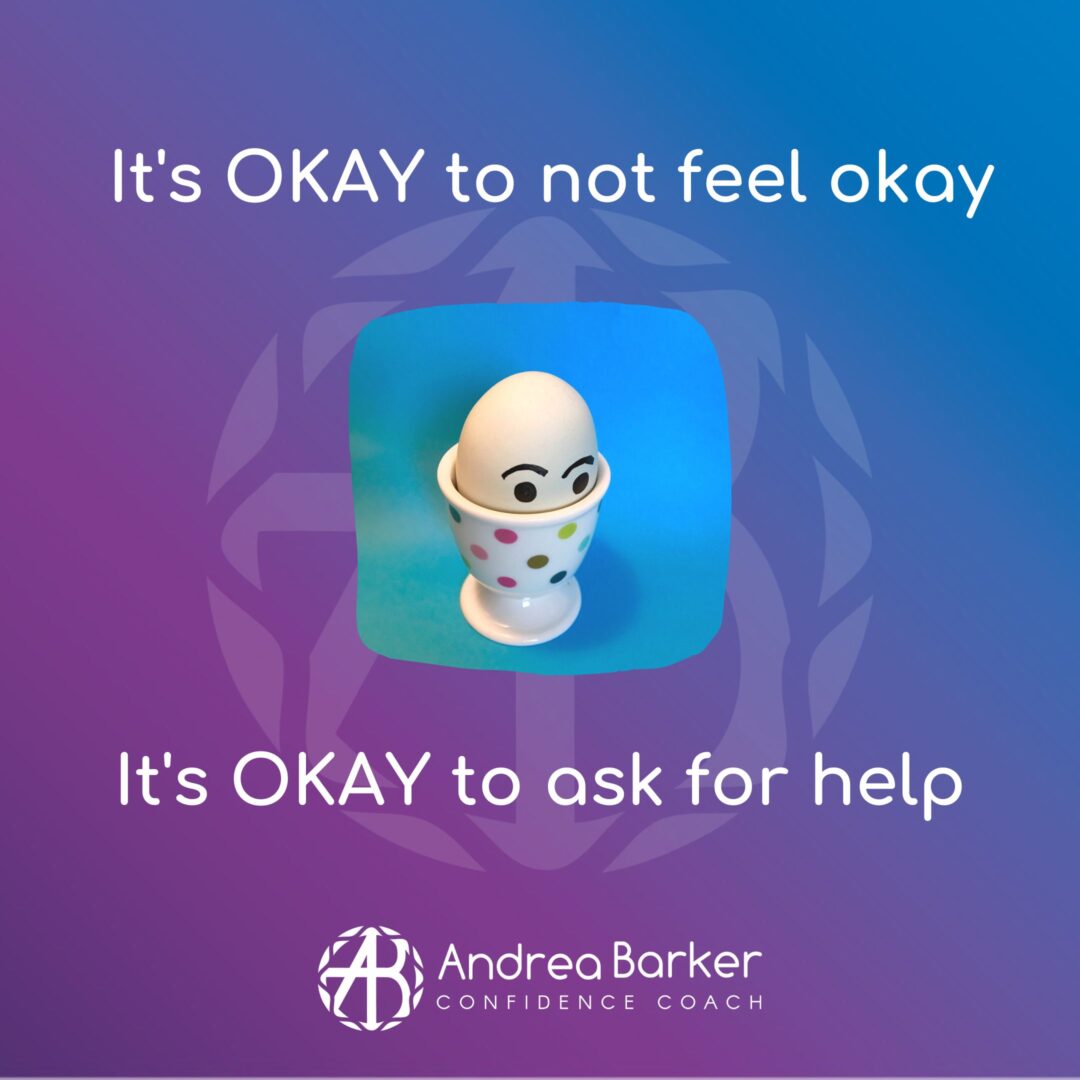
Andrea
Reboot your Confidence
Many people, older and younger have lost their confidence due to the impact of the pandemic and are now experiencing Social Phobia and Anxiety with being in larger groups of people, like crowded shops or functions, and around returning to school, university or getting back to work.
For some people this is a new feeling and for others it has increased after the comparative safety of lockdown, which has gone on for much longer than any of us could have predicted.
After the 19th July this year, more people feel uncertain about the ‘rules’ or etiquette in social or work situations, creating social awkwardness, worries on what is the right way to act around others and feeling unsure about themselves.
For many there is still that wariness around Covid19 and that we are not out of the woods yet!

So, what to do to Reboot your Confidence?
…and to also reduce Social Phobia and Anxiety
Firstly, be kind to yourself and others around you and appreciate you may be a bit out of practice in face-to-face socialising or working and so are other people – which also means they are generally focusing on themselves, not you! Once you have socilaised a few times you will start to feel more at ease.
Talk to others you trust about how you feel – you will be surprised that many people do have similar feelings and opening up is a great way of getting the worries out and feeling better and by having the courage to speak about how you feel could also help someone else who is struggling.
Step by little step – ease yourself into social situations by starting with small gatherings and with work, do speak to your employer and agree to take regular breaks. Most people and organisations do have a greater understanding and will focus on being more aware of mental health and giving support.

For school or University
*young children – the teachers and parents can work together – communication is key on both sides and reassuring the child that you are there for them – maybe they can take in a toy that helps give them reassurance.
*Older children and University students – again, it is about talking about your worries and agreeing a strategy if you are really struggling. Maybe take something like a tactile keyring or pen you like or wear a favourite colour of clothing that helps you feel some comfort and therefore more secure.
*Buddy up with someone and do things together until you both feel comfortable again – which you will.
Fear of doing something can feel big – until you do it
The fear of doing something is always bigger than once you have done it – once day 1 is over you can breathe easier, and you may even then think ‘well that wasn’t so bad’ or ‘what was I worried about?’
*Remember to then give yourself a pat on the back!
Focus on the things that did go well, and if it works for you – write them down – it helps your mind to focus on what was positive out of the day or experience.
**If you feel you can’t talk to people around you, then the 24/7 text service that SHOUT 85258 offers is a great way to get some support.
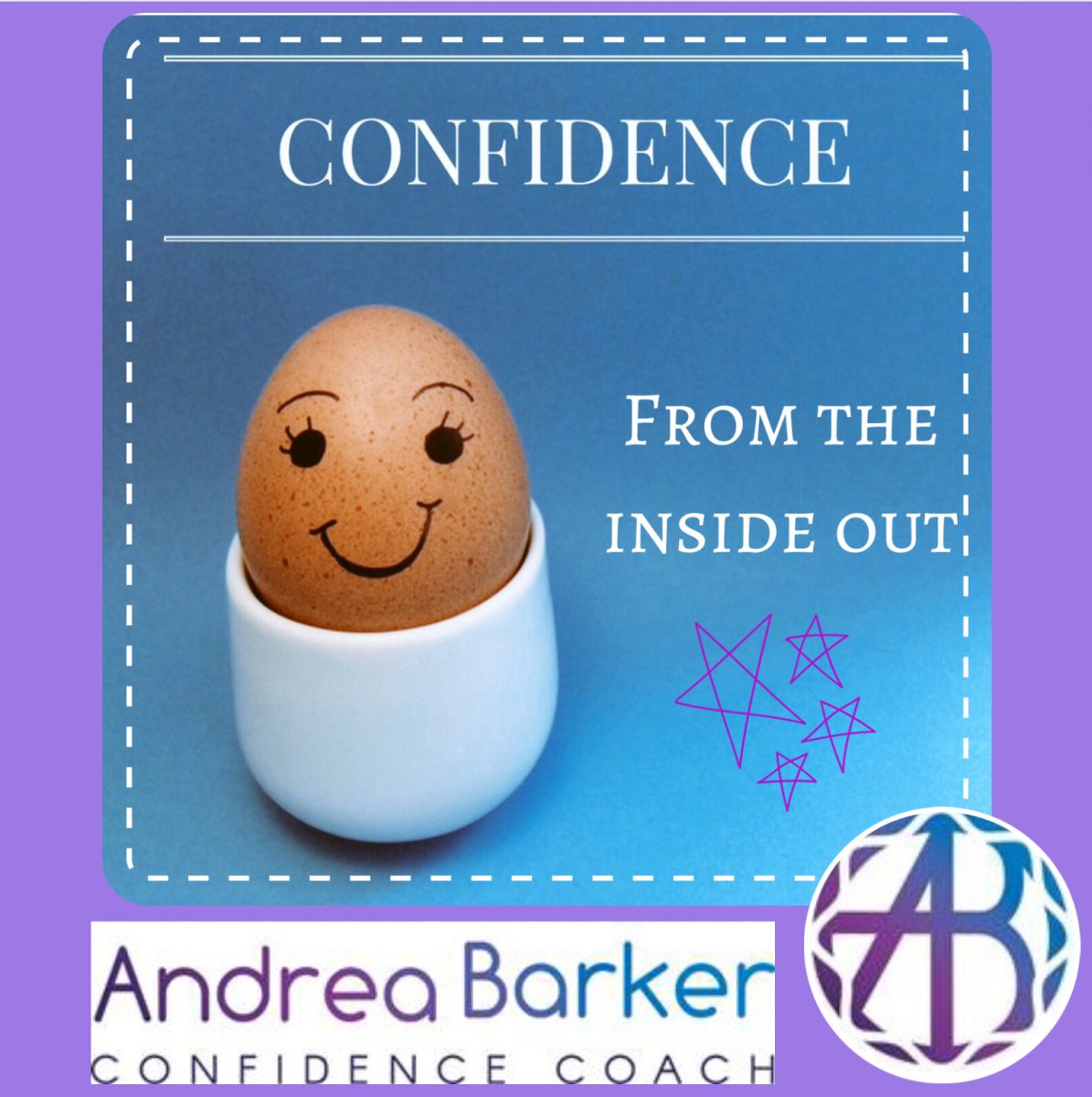
You can also use ‘visualisation’ – this is using your wonderful and powerful imagination to literally imagine your day going well. Just before you go to sleep, with your eyes closed, see yourself – like in a film or dream – having a good day and smiling – it works. Athletes use visualisation to imagine themselves winning and practice their skills – if you have ever heard an Olympian receive a Gold medal – they say I have dreamt of this moment many times over. If you think you can’t do this – well think again! Anxiety is imagination on overdrive – imagining things going wrong – so with visualisation you purposefully imagine things going well.
Also, I have talked before about pressing, tapping or rubbing below your collar bone if you are feeling anxious about a situation and thinking of someone or something or someone that makes you smile, then imagine your favourite colour and tell yourself ‘I’m OK – I’ve got this’
You’ll be fine by being kind to yourself and trusting that you do know what to do.
Andrea
Anxiety due to Lockdown restrictions lifting
How are you feeling as restrictions ease again?
Are you having feelings of anxiety?
We are on the road to Lockdown restrictions easing again, after what seems like an age.
With it comes tentative optimism and apprehensive excitement.
How are you feeling?
Though the government have given us a ‘roadmap’ out of lockdown, which is what most of us want, many people are also feeling wary and anxious.
If you are feeling anxious, here is some advice and reassurance for you, further to my talk with Pat Marsh on BBC Radio Kent.
We have had lots of changes and uncertainty to accustom ourselves to and the energy we have used to adapt and maintain these changes, and the feeling for many of ‘Groundhog Day’ has taken its toll and caused a sense of fatigue.
For people with Social phobia or anxiety (anxiety of being in group situations, meeting someone new or going to a new place) Lockdown in some respects, has ended up being a safety net, taking away the expectation and pressure to be around others.
Several Mental Health Charities have reported that for people suffering with anxiety or social phobia, the easing of restrictions has caused their anxiety levels to soar.
Many people are suffering feelings of anxiety for the first time
For many people who have not previously suffered with anxiety, alongside the excitement and need to be around others and hugs, there is also anxiety about being in groups of people. Many report the feeling of wanting to hang back and be cautious with their family and friends, even though the guidelines have been set out.
For some it really has been such a hard, tragic & emotional time and along with the need to grieve properly and see family, understandably though there is also an overwhelming anxiety at the thought of another Lockdown, if our easing of restrictions has a negative effect.
We all know, that regardless of our individual situations, we have a collective responsibility to look after each other, whilst making sure we are OK.

Do be reassured that the guideline set out by the government are gradual and being monitored along the way.
Advice:
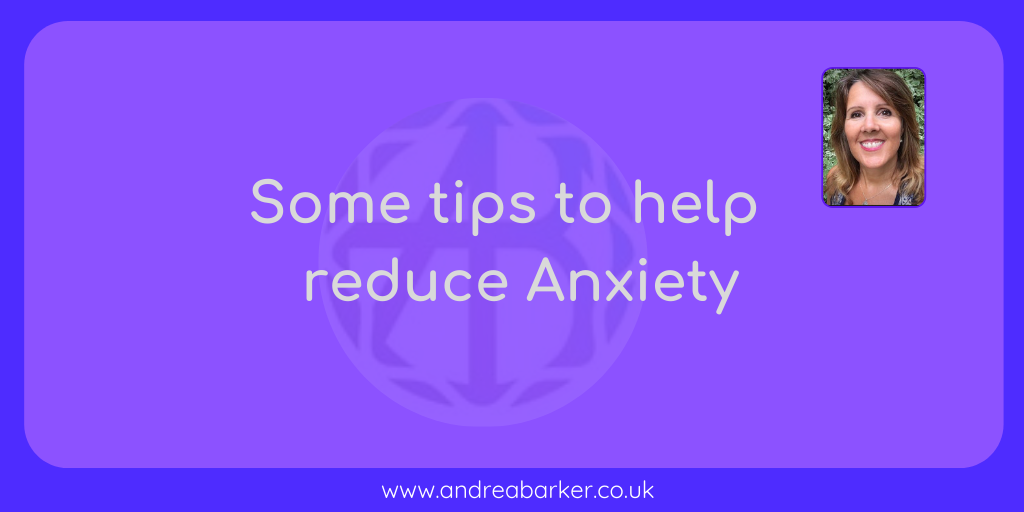
Work related
· For Employers and Employees, there is much advice to manage the easing back to work and being Covid safe. It is a worrying time for businesses, the workforce and customers, so working together will be safer for all.
· If you are feeling particularly worried about protecting your staff – the Government Health and Safety Executive website has clear guidelines to help you.
· If you are due to return to work and are feeling particularly anxious – speak to your employer and maybe you can do a phased return into the workplace – depending on your role. At the moment, working from home is still the preferred option if you are able to
Stay connected
Do try to stay connected – reach out to others. Speak to people about how you are feeling. It is OK to be feeling anxious and more people than you may realise feel this way, so they will be being cautious too.
· Many people, especially teens and young adults are feeling like they have lost their connection with friends in particular, during the last year. Reach out and say Hi.
From the 29th March (England) you can meet up to 6 people outdoors in a garden or public space. As Spring unfolds the weather will be warming up too, so it is something to look forward to.
Have I done enough? Do I look OK?
· Other worries are things like; ‘have I accomplished enough during lockdown’ ‘what if I don’t look so good?’ Most people definitely have a Lockdown hair style! Please do not compare your individual experience to that of another person’s. You may it is actually a good way to break the ice and share stories.
You have accomplished more than you think!
Think about, and even write down, all you have achieved from small things like learning to cook something new, to surviving home-schooling and finishing off something for when you had the time!
Do things at your own pace
· Doing things at your own pace, as much as is possible, is a good idea. Take your time with getting out their again. Please do not feel that others will be upset with you, because most people do understand. You can keep numbers of people that you meet in a group smaller than advised until you feel more comfortable – it is OK.
Helping others helps you too
· It is worth noting that stress levels will be higher for a lot of people, so be as kind and understanding as you can – helping someone else and easing their anxiety helps you feel better too.
· Feelings of anxiety are usually all the ‘what if’s’ of something going wrong in the future or thinking about something that happened before. Focus on the things you can control and try to keep yourself in the present moment or situation you are dealing with right now. To take those initial steps back into a more social environment are important, even though it may feel safer to stay home.
Map Apps show you the busiest times for stores, which can help you pick a quieter time.
If going back to work, it could be helpful to do the journey beforehand as a dummy run, at a relaxed pace, to put you at ease.
Controlling anxiety levels
· Breathe – what we call ‘box breathing’ is great and easy to do. Breathe in slow and steady to the count of 4, hold for 4, breathe out for 4, hold for 4. You will only need to do this for two or three rounds – then tell yourself ‘I’m OK’ ‘I’ve got this’
· Tap or rub under your collarbone, one or both sides if you feel your anxiety levels rising – take a slow breath and think of someone or something that makes you smile, or a calming colour all around you. You can do this quite subtly – like when standing in a que or before going into work, same for the box breathing too.
· Stay hydrated, eat a good diet and give yourself time for a restful sleep, by having a good winddown routine before bed.
· Try writing down any worries before sleep and then ripping them up, practice writing down 3 good things from your day in a notebook – anything that made you smile or feel good. It can also help to write down 2 or 3 things you are going to do the next day too – this alleviates anxiety from your mind and allows you to sleep better.
Better than you think
You really have done better than you may be giving yourself credit for. The vaccine rollout has been a success so far and we are incredibly lucky to have it, even though some people have concerns – this is a natural process for anything new.
Moving Forward
Time now to take those tentative steps and look forward.
Warmest regards
Andrea Barker
‘Kent’s Confidence Coach’
Your Mental Health and Well-being matters
looking after yourself and others during the continued restrictions
It is hard to believe that nearly a year on and we are still in the midst of the pandemic and restrictions.
Our Mental Health and well-being has certainly been under pressure and it does always seem worse during the colder months – however spring is around the corner, as is the hope of getting back to some form of normality.
Children and parents have been finding it particularly hard, as have those people shielding and living alone, when so many of our social face to face interactions are not possible.

The message is –
- to stay as connected with other people in what ways you can, whether meeting for a socially distanced walk, phone call or video call, and talk about how you feel – or check in on someone else, especially if you know they live alone. If they do not want to talk, just let then know you are there and will check in again with them. Sometimes people do want another person to just listen –
- There are so many wonderful organisations you can talk to or text – reach out, it is so worth sharing your feelings – you are not alone. SHOUT, MIND & YOUNG MINDS, CALM, ANXIETY UK to name a few.
Age UK has a good video to help older people who are not familiar with video calling.
Nature continues regardless…
If you can, do outside into nature, it does have a calming effect and helps you feel a little more grounded, getting natural light is important.Even 10 minutes a day will help – look out for the signs of spring, like snowdrops and daffodil buds or just pause and listen to the birds. You can put some food and water out for the birds and get nature to come to you.
If you are feeling low or have feelings of anxiety that you find hard to talk about,
then why not look at expressing how you feel by reading or writing poetry, how about a story or blog, if you are musical – you could write a song or rap? There have been some particularly funny Lockdown songs and during these times – humour is a saviour.
If you do feel particularly anxious
try writing down all your thoughts on a piece of paper and then rip it up and throw it away.
Maybe draw or paint your feelings and use the colours as expression – you don’t need to be ‘good’ at art, just use the colours in a way that helps you feel good or release pent up feelings.
Put some music on and really feel the music, express yourself through movement – dance like no-one is watching – or dance together whether in person or over a video call and have fun. Movement, like dancing or other forms of exercise are so good for you, and help you feel energised.
Focus on the positives from each day
take each day one day at a time. Take timeout for self-care, like reading a book, going for a walk or having a bath – this helps you cope with what is going on around you
Remember to Breathe… and let go of those things you cannot control and focus on what you CAN do

Valentines in Lockdown?
‘Lockdown Love’ has certainly been a challenge, especially if you do not live with your partner, or are single and looking for love.
So, what can you do for Valentine’s day?
- You could have fun making each other a valentine’s card and a poem to go in it! Or send one to cheer up a friend or someone you admire!
- Write a valentine’s song.
- Send a valentine’s video – with a lovely message or song!
- Dress up for a night out & cook a meal together – or if you live apart both cook the same meal over zoom!
- Maybe support a local restaurant by ordering a valentine’s meal or food hamper.
- Watch a film together and cosy up – again you can watch the same film together while on a video call – just press play at the same time!
- Wrap up warm and go for a country or coastal walk
- Send flowers, an indoor plant or seeds for the garden.
If you are single and looking for love
Are you currently single?
It certainly is a challenge to be able to meet anyone in person, however dating site reports suggest it is a good time to have more meaningful chats with a potential partner, with a little less initial pressure about meeting up.
If you are using dating apps, do take care and make sure you try not to go on them when you feel particularly vulnerable, and do not give out your phone number – use the withhold number option, until you feel safe to.
Only ever arrange to meet someone if you feel safe. That it follows current restriction guidelines, and you tell someone where you are. Do not meet anywhere remote.
For Valentine’s why not buddy up online with another single friend. Watch a romantic film or RomCom – with a warming hot chocolate or a cocktail!
If you can – treat yourself to some lovely food to cook or order in and why not?
- Loneliness can be hard, so remember to connect with friends, or the wonderful organisations out there. Check up on someone you know is alone.
Valentine’s day is just one day!
Stay connected and stay safe
Andrea
AGE UK https://www.ageuk.org.uk/information-advice/work-learning/technology-internet/
Young Minds https://youngminds.org.uk/
Anxiety UK https://www.anxietyuk.org.uk/
5 tips to help reduce Anxiety
It has been a tough year for many with Anxiety levels rising
I hope this short video helps you or those you love reduce and relieve Anxiety
Andrea
Small ways to stay Happy & Healthy
Staying Happy and Healthy is crucial to your well-being
If you are feeling low or anxious – here are some small things you can do to help you stay Happy and Healthy.
Do keep connected with others, in what ways you can.
Keep moving and get outside if you can, or buy some houseplants to bring the outside in, and feel the benefits.
Playing games with others is a great way to have fun and be connected, all you need is a pack of cards – why not revive some traditional games.

Look after yourself
Look after yourself – you’re worth it, and when you’re ok – life flows better, and you feel more able to deal with any stresses.
Andrea
Ways to cope with Anxiety and Stress during Lockdown
As we head into our second lockdown, how can we reduce anxiety and stress?
A return to restrictions and lockdown has seen Anxiety levels soar again, in all ages.
It has been a year that has touched everyone in some way. One we certainly won’t forget.
Continued uncertainty and not being able to plan for the future, can give the feeling being anxious, stressed and not being in control. We are left wondering when ‘normality’ will return.
This can also create stress and overwhelm, as our mind becomes hypersensitive to the continued threat to our well-being and fears go into overdrive.
As the weather changes too, how can we manage our anxiety, or help those close to us?

Following on from being on Pat Marsh’s show, on BBC Radio Kent – I have listed the advice spoken about and more…
Focus on what YOU can control
Like your getting up time, when you have lunch or some exercise, whether indoors or outdoors.
A routine is a great thing to have in the week, especially if you are not able to continue your normal routine, to give you structure. Relax at the weekend. This will help you feel less anxious to keep the days of the week and the weekend seperate.
Also, Stick to a good bedtime, to get important sleep you need. Waking up refreshed is so much better for you and will help you cope better day to day. Our body repairs and our mind helps file away our day.
If you wake up in the night – listen to the calm silence and then task your mind to count down from 300 – gently keep bring your mind back to the countdown and you will go back to sleep. It is a good idea not to turn on phone screens if you wake up, because the light affects your sleep hormone, which promotes sleep.
Stay connected in whatever way you can with family and friends. This is the time to keep talking. Talking to friends and family about how you feel, or listening to others, can really help.
Pick up the phone and have conversations. Check on your neighbours. You can meet one other person for a walk, so even if it is meeting for just a half hour walk, it is well worth doing. Wrap up if it is cold and prepare to be invigorated!
If you feel anxious and like thoughts are whirring around your head – get a plain piece of paper and write everything down – then rip it up. It feels good.
Try to limit the news to once a day, just so you can keep in touch with what is happening that may affect you, then concentrate on what you can control within your own environment – whilst following the guidelines.
Other things you can try:
- Join virtual group or create one – like a model club, knitting, photography… there are other things too, if you are not wanting to use a device or computer.
- Have quiet time and read, colour, draw or paint and do crafts, or a jigsaw
- Try calming mindfulness – focus on your breathing and think of things that make you smile and feel happy
- Make a calming glitter jar – literally fill an empty jar with water and glitter – seal and enjoy its calming affects
- Get a stress ball – or something lovely and touchy-feely for when you feel anxious and stressed or pop bubble wrap!
- Listen to music, sing out loud and dance – music has wonderful power to uplift you and change your mood instantly and it lasts
- Watch things that make you Laugh, laughing really is a tonic.
So, give a few things a good and you will feel better
Feeling panicky?
If you are feeling panicky:
- Breathe – breathe in for the count of 3, hold for 3, breathe out to the count of 3 and hold for 3 – do this three times and you will feel calmer
- Tell yourself ‘I’m OK, I am calm’
- This could be useful to try: Focus on 5 things you can see, 4 things you can hear (even if you create the noise) 3 things you can touch. This grounds you and helps you feel calmer.
Really not feeling yourself?
We can all be feeling anxious and stressed, but if it is taking over your day to day living, affecting your sleep and eating habits, then do seek help from your GP, and the many organisations available to get the support you need.
You are not alone: 1 in 4 people suffer anxiety.

Andrea
Returning to school after Lockdown
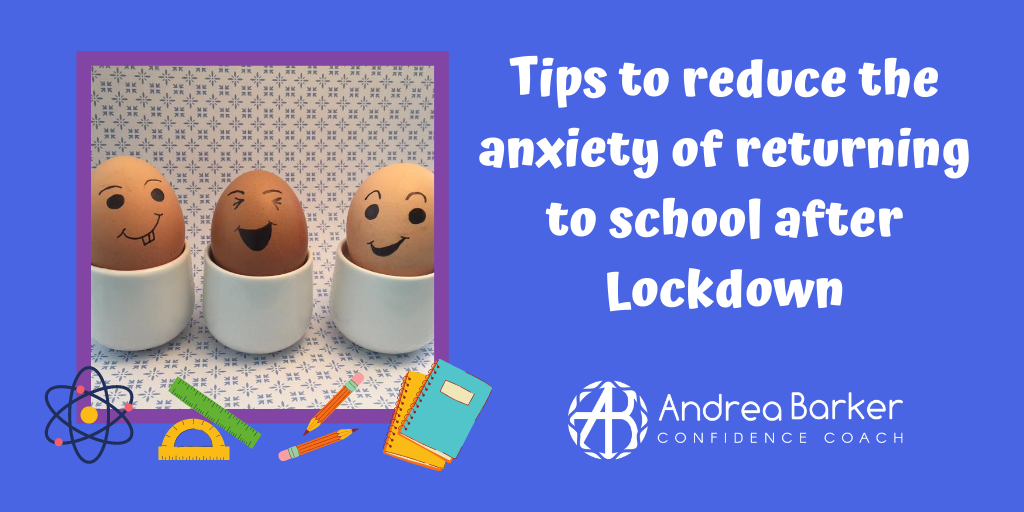
Tips to help reduce the anxiety of returning to school after Lockdown
Covid19 pandemic of 2020 and the resulting lockdown, has certainly had an impact on all of us, not least our children causing much anxiety. So, how can we help?
*firstly, do seek professional help if you feel you or your child’s mental health is of concern.
As lockdown eases further, children of all ages and their parents may be having feelings of anxiety around returning to school after such an extended break and worrying about how safe it is for their children, which is understandable.
For many children, lockdown has been a happy & safe experience that they may not want to change.
Many children have desperately missed their friends, teachers and the routine school offers and have also been missing out on extra-curricular activities.
Children & young adults can respond in different ways:
Maybe becoming withdrawn; be unusually clingy; be ‘naughtier’ and seek attention or lash out and can show their concerns by really worrying about what might happen but find it difficult to say how they feel.
Things that may help
- Children mostly take their cues on how to deal with a situation from the adults around them.
- Be aware of using negative language, or talking about your worries within your child’s earshot, about them returning to school.
- If your child is worried about going back to school, it isn’t enough to say, “everything will be alright”.
Acknowledge how they feel, and that it is ok if they feel worried and then help them to deal with it and find good coping mechanisms
- Older children – let them know it is Ok to feel anxious and that the feelings can just be some apprehension and are the same for excitement too! That after day one or two they will feel much better
- Try to limit the news coverage and stick to things you can control within your environment and your child’s school.
- On a practical level – connect with parents and children your child knows from school. Arrange a safe play date or meeting. This helps you share your worries too.
- Walk or drive past the school a few times before the term starts. Also, get your child involved in getting their uniform and bag ready.
- Encourage your child to talk about what they like doing at school and their friends
- If your child is moving from primary to secondary, remember that their anxieties are real, encourage them to talk over how they feel.
- Most schools have good information on their website about the safety measures they have put in place. Contact the school if you are particularly concerned.
- Some Children worry about leaving their parent alone at home…reassure them that you will be fine.
- For most children of all ages – after the first few days of getting back to school, a routine will soon be found, and they will have survived and so will you!
*SHOUT – part of Heads Together a useful texting service for people struggling with Mental Health. Visit Childline, Young Minds and Anxiety UK’s websites too, all packed with great advice.

